Green architecture – FAU College of Engineering and Computer Science
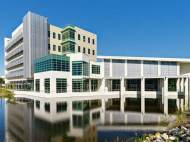 Florida Atlantic University (FAU) in Boca Raton, Florida, was recently awarded with LEED Platinum certification for their new College of Engineering and Computer Science Building. Science buildings are typically energy-consuming by nature, but both the college representatives and the project team wanted to build a world-class facility that would showcase the university’s commitment to sustainability.
Florida Atlantic University (FAU) in Boca Raton, Florida, was recently awarded with LEED Platinum certification for their new College of Engineering and Computer Science Building. Science buildings are typically energy-consuming by nature, but both the college representatives and the project team wanted to build a world-class facility that would showcase the university’s commitment to sustainability.
Designed by LEO A DALY, the new 9,011-squre-meter (97,000-square-foot), five-story facility houses the university’s computer science, electrical and computer engineering programs, and consists of electrical instrumentation labs, computer build/circuitry labs, 5G technologies and specialized research labs. Educational Signage in the facility teaches visitors about the sustainable features and systems used within the building.
The new FAU building’s orientation provides natural daylight within 90 percent of the building’s occupied rooms, views from 75 percent of the occupied rooms, shading of the building’s exterior to control heat gain and glare, and favorable orientation to the wind. High-efficiency lighting systems lower the overall energy consumption.
The building has a roof garden that exhibits native plants irrigated with condensation from the air conditioning system and highly reflective “cool roofs” which reduce both the solar heat gain to the building’s interior and the cooling requirements.
The building uses chilled beam technology, which has been used in Europe and Australia but has been seldom used in the United States until recently. It substantially reduces the energy used by mechanical systems. Using this technology coupled with a 54 KW photovoltaic array, heat exchangers and other additional strategies reduced the energy usage by almost 35 percent compared to an ASHRAE benchmark building.
Geothermal wells capture heat from groundwater that has a year-round stable temperature of 25.5 °C (78 °F), to reheat the fresh air in the dedicated outside air unit. Additionally, heat exchangers capture heat gain from the data center computer servers and the UPS. Solar Hot Water System captures heat from the sun to supply the hot water in the building. The water consumption is reduced by 40 percent compared to the typical facility through features such as high-efficiency restroom fixtures and occupant sensors.
The builders practiced usage of local materials and diverted more than 80 percent of the construction waste from landfills. Florida native and adaptive vegetation was used to restore natural plant and animal habitat for the new Engineering building premises.
In addition to the LEED certification, there are training and educational achievements within the building including state-of-the-art classrooms and labs, as well as a virtualized cloud computing infrastructure, enabling the use of information technology resources on demand. E-waste from FAU campuses was recycled and incorporated into the facilities’ artwork within the project.

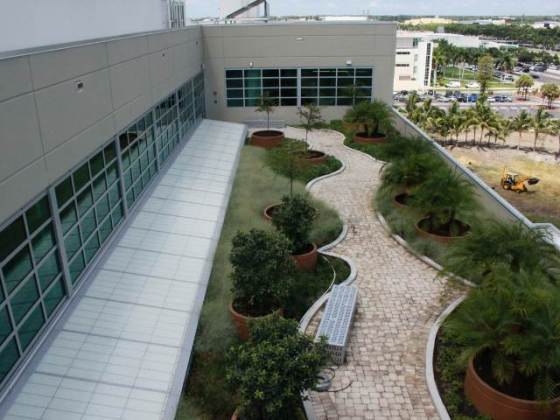
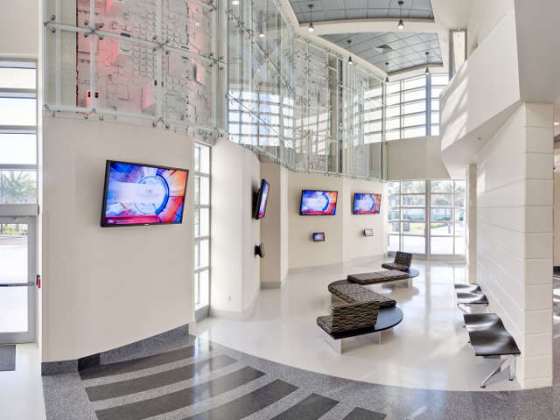
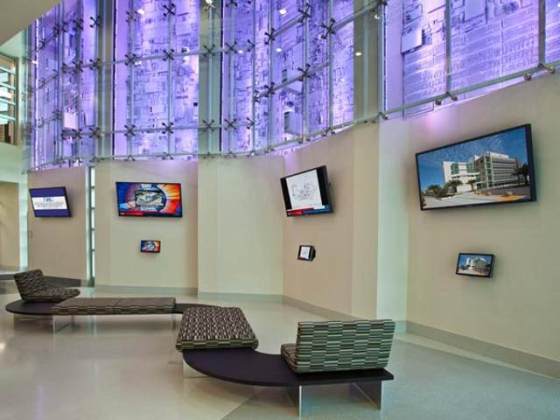
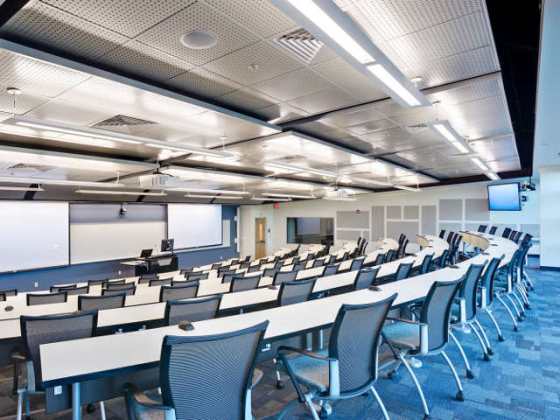

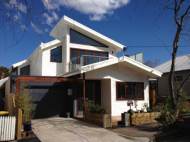
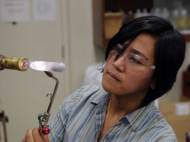
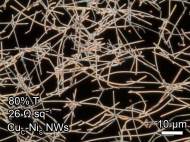
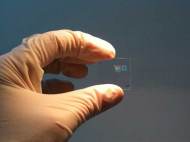
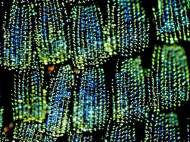

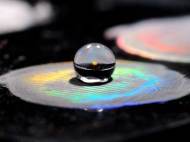
Leave your response!